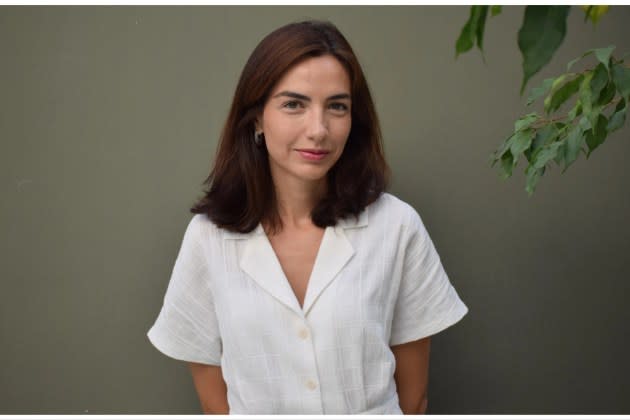New Head of Rotterdam’s Hubert Bals Fund Tamara Tatishvili Vows to ‘Revamp and Revise All Schemes’
- Oops!Something went wrong.Please try again later.

Tamara Tatishvili is going full steam into her first edition of the International Film Festival Rotterdam, which runs Jan. 25 – Feb. 4, following her appointment as the head of the festival’s funding arm, the Hubert Bals Fund. She started full-time in early January.
“I will use the festival to connect to professionals outside of IFFR, hosting informal think tank meetings with industry professionals, producers and sales agents within a close environment to see what their observations and ideas are, and how this could feed into the future thinking strategies of Hubert Bals Fund,” she tells Variety.
More from Variety
She went on to emphasize the importance of festivals from a funder’s point of view. “Festivals are key platforms to connect the stories funds help create to audiences. Audience engagement is a key topic. Funders and producers believe films need to be made to reach audiences. It’s how you create impact and how you make people understand the world a bit better.”
The Hubert Bals Fund was founded in 1988 and named after the festival’s first director. In the three decades since, the fund has supported filmmakers such as Apichatpong Weerasethakul, Radu Jude and Lucrecia Martel. Recent festival hits supported by the fund include Amanda Nell Eu’s “Tiger Stripes,” Wang Bing’s “Youth (Spring)” and Rodrigo Moreno’s “The Delinquents.” Three HBF-backed films are playing this year’s IFFR: Elene Naveriani’s “Blackbird Blackbird Blackberry,” Toma Selivanova’s “Dolomite and Ash” and Julia De Simone’s “Praia Formosa.”
Tatishvili comes into the position as the former director of the Georgian National Film Center and the current head of studies at Medici, a training and exchange forum for decision makers of international public film funds. She says that the role felt like a “natural next step” in her career as a producer, programmer and strategy consultant, as it “brings together my passions of curation and strategy on top of my perspective and understanding of low production countries.”
“The beauty of a fund like Hubert Bals Fund is that we can not only fund the development of projects, but we can also accompany the talent during the whole journey,” she continues. “That’s much more of a companionship with talent than a strict funding pool. I am very willing to understand what additional value the fund can bring to talent.”
Tatishvili’s personal background makes her particularly appreciative of the fund’s mission to support talent from areas of the world that might not have access to the same level of funding and support available in countries with more developed film industries.
“Coming from a small country in the South Caucasus in Georgia and seeing the industry from within, I am not interested in going to other countries and preaching to people on how to make movies. I am rather interested in understanding the local context and finding a way to support the authenticity and diversity of the stories, but it’s also up to me as the fund to be tactical and strategic with schemes that could support the most talent.”
To work on a long-term strategy for the fund is next on Tatishvili’s to-do list, but she is hoping to take 2024 as a “year of thinking.” “I’m not rushing, I’m not going to revolutionize anything in 24 hours. A lot of work is needed. I’ve been reaching out to talent that has been funded by us more than once to hear about what they think about the impact of the fund, and I hope that through these connections we can create something of a talent network.”
Tatishvili emphasizes that the fund’s currently running programs will go ahead with very few tweaks while she works with her team on solutions to big questions, such as how to go about funding established talent and managing the overwhelming volume of applications they receive each year.
“If a director has already done three or four films that have shaped their artistic vision, do we need to support them further? We cannot be funding esteemed filmmakers next to debut filmmakers. This is one of the puzzles we still need to solve.”
Tatishvili’s 2025 ambition is to “revamp and revise all schemes,” while also focusing on how to best streamline their application process. “We received more than 600 applications last year for projects in development and could only finance 10. This is not working. Maybe sometimes we need to advise filmmakers not to apply if it’s not the right moment. My personal, very selfish dream for HBF, would be of course to get some more funding.”
Best of Variety
Sign up for Variety’s Newsletter. For the latest news, follow us on Facebook, Twitter, and Instagram.
